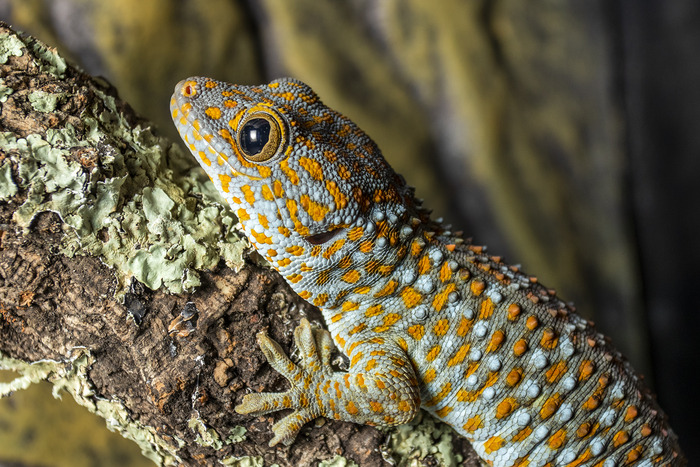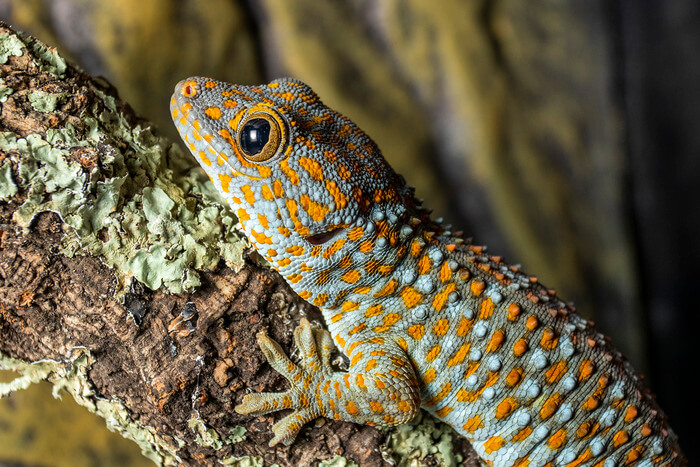Climbing walls and
flicking tongues
these lizards of the shade
dance through selves,
shedding scents like tails
to taste the sticky prints
of near and distant kin.
Twirling through
unsettled skins,
they smell reflections
in deceptive trails
of peppermint and dew,
unmasking truths
with lidless eyes
that sense beyond
the boundaries of
our own.

This poem is inspired by recent research, which has found that geckos can use their tongue to differentiate their own odour from that of other members of their species.
Self-recognition refers to the capacity to perceive stimuli originating from oneself. Humans and certain animals possess the ability to visually recognise themselves in a mirror. Nonetheless, some animals prioritise senses other than vision. Among them, geckos, as well as other lizards and snakes, rely on their tongues to perceive chemical signals or pheromones from other individuals. For example, while climbing a wall, geckos intermittently halt to flick their tongues in different directions, enabling them to detect possible mates or competitors. Nonetheless, it has previously been unclear whether geckos can recognise their own scent and therefore themselves, through the sense of smell.
In this new study, researchers exposed geckos to various scents on cotton swabs. These scents included their own as well as those of other geckos, along with control scents such as water and peppermint. The geckos displayed two distinct behaviours in response: extending their tongues towards the swab with the odour and towards the surrounding area where they lived. The researchers inferred that this indicated the geckos initially perceived the scent on the swab and subsequently compared it to their own scent on the walls of their enclosure. During the tests, the animals were more interested in the skin chemicals of other geckos than in their own. This research therefore confirmed that geckos can both detect skin chemicals that they themselves produce and discriminate between these chemicals and those of other geckos of the same sex, thereby demonstrating that geckos use pheromones for social communication. This research demonstrates that reptiles, such as lizards, have more advanced social and cognitive abilities than previously thought, with any evidence of self-recognition an important step in demonstrating that self-awareness is not unique to humans.
If our reporting has informed or inspired you, please consider making a donation. Every contribution, no matter the size, empowers us to continue delivering accurate, engaging, and trustworthy science and medical news. Independent journalism requires time, effort, and resources—your support ensures we can keep uncovering the stories that matter most to you.
Join us in making knowledge accessible and impactful. Thank you for standing with us!

